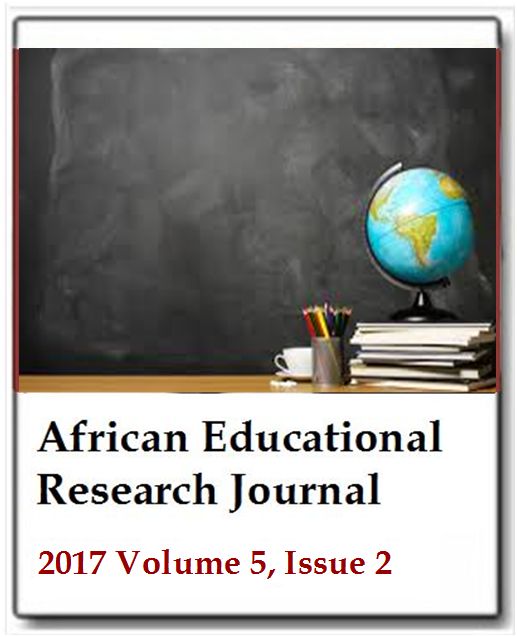National integration and democratic consolidation in Nigeria
Phillip Oyadiran and Adekeye J. AdesholaAfrican Educational Research Journal
Published: April 19 2017
Volume 5, Issue 2
Pages 114-119
Abstract
There have been sterile and robust debates on the issue of national integration as an indelible mark of unity. Democratic consolidation comes to mind when the heterogeneity and differences are seen as factors that cannot hinder our peaceful co-existence in a fair, just and egalitarian society where people’s voices and inputs are significant. The feeling of national spirit is evident in the sensitivity of the leaders and the led in attending to national issues as touching the plights and yearnings of the citizens irrespective of background and other factors. This paper examined the factors militating against the continuous existence of Nigeria as a united, indissoluble and sovereign nation due to the perceived mistake of 1914 amalgamation by Lord Lugard. Methodologically, the study adopted a qualitative technique of data collection through the content analysis of documents, reports, journals, books and articles. At the end of the study, it was discovered that the factors militating against the consolidation of the Nigerian nascent democracy are national questions such as the continuous agitation of resource control, constitutional amendment, minority/majority syndrome, revenue sharing formula, unjustifiable distribution of resources, activities of ethnic militias, unequal representation in the National Assembly, zoning/rotational presidency and corruption. Therefore, the study recommended for the convocation of sovereign national conference through which a true Nigerian constitution would emerge in favour of true federalism.
Keywords: National integration, democratic consolidation, federalism, sovereign national conference, constitution.
Full Text PDF
